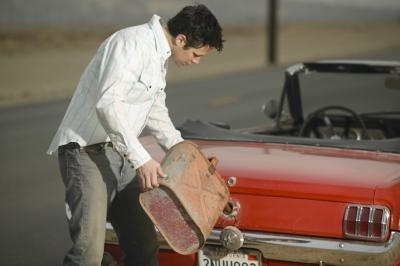
If you plan on storing your vehicle for an extended period, or if you are the owner of a plug-in hybrid car like the Chevrolet Volt and use very little gas, you may be asking yourself if gasoline goes bad over time. The answer is unequivocally yes, and there are a couple of different reasons.
To burn in your car's engine, gasoline contains highly volatile compounds. Over time, many of these compounds simply evaporate, leaving the resulting gas more heavy on additives and with a lower efficiency rating. After a long time passes, burning the gasoline will produce very little energy at all and poor performance will result.
While energy component vaporization affects performance, old gas oxidation can actually damage your car. The gas oxidizes when hydrocarbons react with oxygen in the air. The resultant compound has a different chemical composition than new gas and can actually damage your fuel lines, carburetor, injectors or other system components.
Even gasoline sitting in the large storage tanks at a filling station is susceptible to going bad. Over time the gasoline draws in water as heat causes it to expand and condense. Water in the fuel can be extremely detrimental to your engine, so avoid gas stations with very light traffic.
To avoid damaging your car's fuel system, never store it for periods of more than a couple of months with gas in the tank. Auto supply companies sell additives that will make the gas more stable over time, though the best option is to leave the tank dry and fill up with fresh gas before starting it again. If you have already made this mistake, fill the tank with as much fresh gas as possible before running the car.